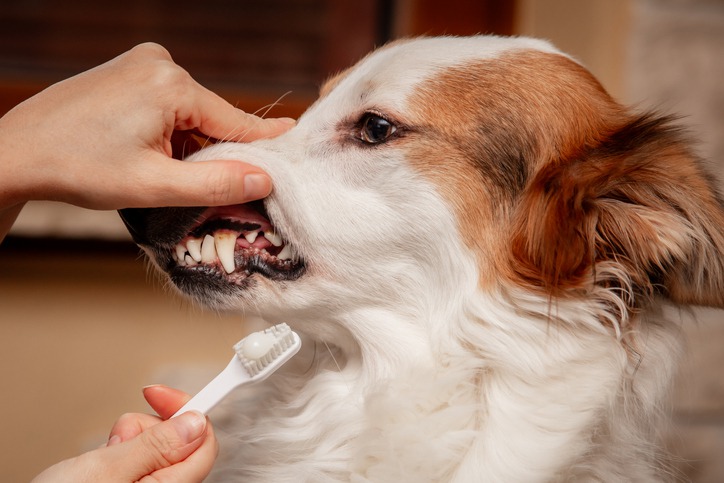When a beloved pet is diagnosed with cancer, finding the right care becomes a top priority. Specialized pet oncologists play a crucial role in providing comprehensive cancer treatment tailored specifically to animals. However, locating these specialists can be challenging and overwhelming for pet owners. This article aims to guide you through the process of finding and accessing specialized pet oncologists, ensuring your pet receives the best possible care.
1. Conducting a Preliminary Search
The first step in locating a specialized pet oncologist is conducting a preliminary search. Utilizing online resources and directories will help you identify potential specialists in your region.
Using Online Resources
-
Begin by searching for a veterinary oncology clinic in your area. A simple online search can reveal numerous options.
-
Utilize veterinary professional associations’ websites, which often provide directories of certified specialists.
Useful Directories
-
AVMA (American Veterinary Medical Association)
-
ACVIM (American College of Veterinary Internal Medicine)
-
Local veterinary medical boards and associations
2. Evaluating Credentials
Verifying the credentials of a pet oncologist is crucial to ensuring your pet receives the best care. Certification by recognized veterinary professional bodies signifies expertise and specialization in veterinary oncology.
Importance of Checking Certifications
-
Certified specialists have undergone rigorous training and assessments.
-
They are equipped with the latest knowledge and techniques in oncology treatment.
How to Verify Credentials
-
Visit the websites of professional associations such as AVMA and ACVIM.
-
Check for certifications and licenses on the veterinary oncology clinic’s website.
-
Use search engines to find veterinary oncology clinics that list their specialists’ credentials transparently.
3. Seeking Referrals
Personal recommendations can be invaluable in finding a reliable pet oncologist. Consulting your primary veterinarian and engaging with the pet owner community are excellent ways to obtain trusted referrals.
Asking Your Primary Veterinarian
-
Consult your primary vet, who can provide referrals based on professional networks and past collaborations.
Engaging with Pet Owner Communities
-
Join online forums and social media groups dedicated to pet care and oncology.
-
Ask for recommendations based on other pet owners’ experiences.
-
Seek specialized vets through local veterinary oncology clinics for comprehensive cancer care.
4. Initial Consultations
The initial consultation with a pet oncologist is an opportunity to gather crucial information and assess their suitability for your pet’s care. Knowing what to ask and expect can help you make an informed decision.
Key Questions to Ask
-
What is your experience with treating this specific type of cancer?
-
What treatment options are available, and what are their success rates?
-
What potential side effects should I be aware of?
Understanding Treatment Options
-
Discuss various treatment approaches, including surgery, chemotherapy, and radiation therapy.
-
Evaluate the expected outcomes and how they align with your pet’s quality of life.
Evaluating Comfort Level
-
Assess the facility and its resources to ensure a comfortable environment for your pet.
-
Consider the approach and communication style of the oncologist and staff.
5. Resources and Links
Utilizing online resources and directories can simplify the process of finding and accessing specialized pet oncologists. Here are some helpful links and resources to get you started:
-
Emergency Vet Services – A comprehensive resource for locating emergency veterinary care in the Leighton area.
-
American Veterinary Medical Association (AVMA) – Find certified specialists and access valuable veterinary resources.
-
American College of Veterinary Internal Medicine (ACVIM) – A directory of veterinary oncologists and other specialists.
6. Young Animal Specialists
Specialized care for young pets with cancer involves unique considerations. To provide the best care, it’s crucial to find out about the latest treatment options and interventions specifically designed for young animals.
Importance of Specialized Young Animal Care
-
Young animals may have different treatment responses and needs compared to older pets.
-
Ensuring specialized care helps address these unique challenges effectively.
How to Find Specialists for Young Animals
-
Consult veterinary oncology directories and search for specialists with experience in young animal care.
-
Engage with pet owner communities to gather recommendations on oncologists experienced with young pets.
-
Inquire about the specialist’s experience and success rates with younger animals during initial consultations.
7. Emergency Veterinary Care
Emergencies can arise unexpectedly, especially when dealing with a severe illness like cancer. Having access to emergency veterinary care is vital for managing sudden complications and ensuring your pet receives immediate attention when necessary.
Identifying Emergency Vet Services
-
Research local emergency veterinary clinics that operate 24/7.
-
Ensure these facilities can handle oncology-related emergencies.
Integrating Emergency Care with Specialty Care
-
Confirm whether the specialized oncology clinic has ties with emergency vet services.
-
Coordinate care plans between your pet oncologist and emergency vets to ensure cohesive and responsive treatment.
When to Seek Emergency Care
-
Recognize signs that necessitate immediate attention, such as sudden changes in behavior, severe pain, breathing difficulties, or adverse reactions to treatments.
-
Keep emergency contact information readily available, and ask your oncologist for specific guidelines on when to seek urgent care.
For more detailed advice and support specifically for your pets, visit https://www.allanimalclinicleighton.com/site/advanced-veterinary-care-leighton/emergency-vet.
Final Thoughts
Finding and accessing specialized pet oncologists for your pet’s cancer care is a crucial step in ensuring the best possible treatment and outcome. By conducting thorough research, evaluating credentials, seeking referrals, and consulting with specialists, you can make informed decisions benefiting your pet’s health and well-being. Taking proactive steps to find specialized care will help you navigate this challenging journey more confidently.



